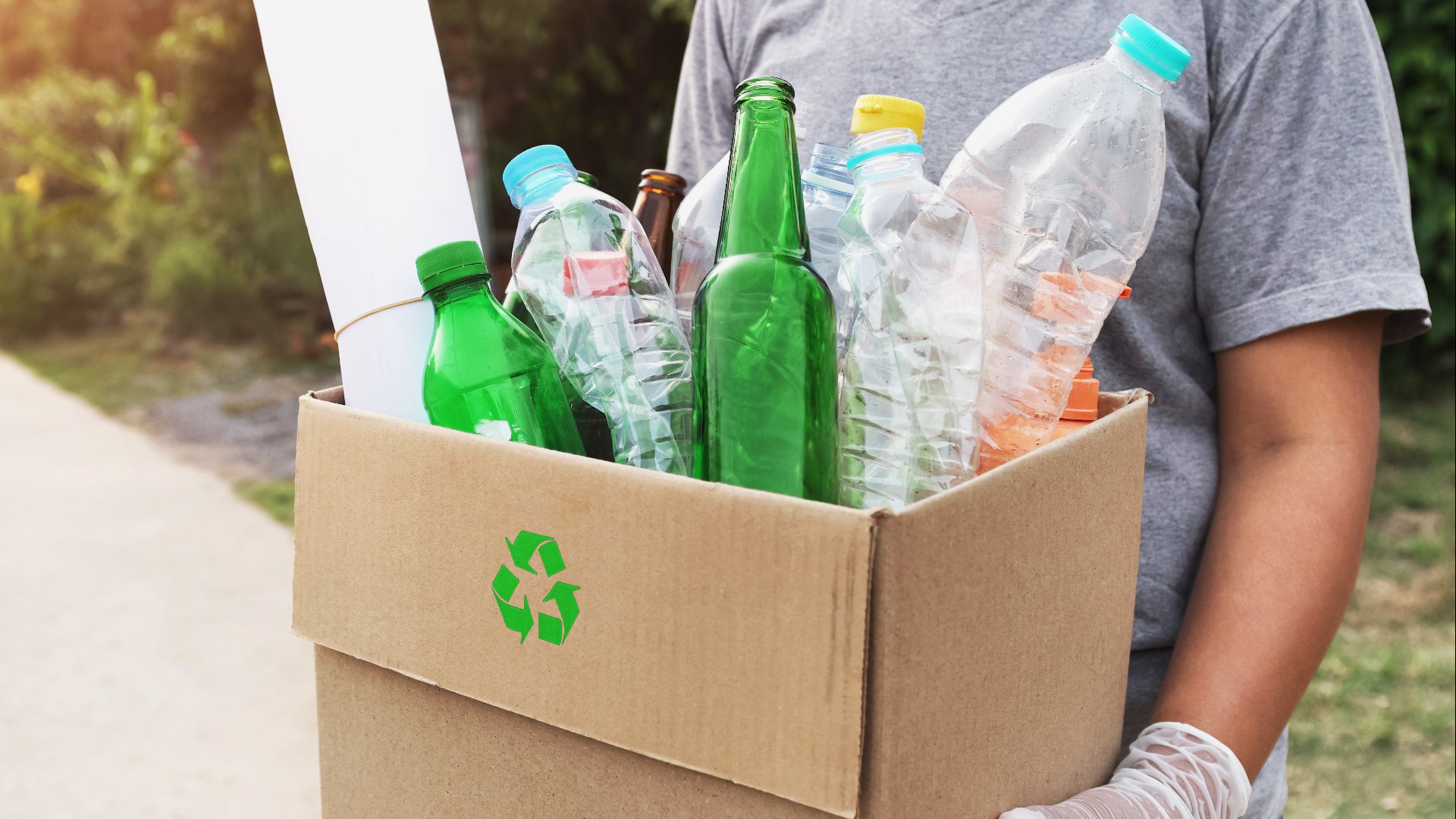INDIANAPOLIS — The COVID-19 pandemic has had a lasting impact in nearly every facet of life, and the recycling business is no different.
"We've seen the volume, just the volume of recycling pick up," said Craig Lutz, manager of municipal services at Republic Services.
With many people working from home and doing school from home, it's only natural we started producing a lot more waste.
"We saw a lot more volume at the curb," Lutz said. "Unfortunately, a lot more volume at the curb caused contamination levels in the recycling stream to skyrocket."
Workers said they found a lot of people were using their recycling bins for regular trash.
"What we're asking residents to do is know what to throw [in recycling bins]," Lutz said. "Know what's acceptable in the recycling stream so we can help keep good recycling material in your recycling bin and contamination levels down."
When Lutz says "contamination," he's talking about the recycling product at the end, which is expected to be 99% pure. That means if a purchaser is buying aluminum cans, they expect the product to be 99% pure aluminum cans with just 1% contamination.
When you throw something into your recycling bin that is not recyclable, it can really mess up the process. Lutz said the biggest issue they see is with plastic bags.
"We say in plastics, if you can poke it, if it can stretch and poke, it shouldn't go in your recycling," Lutz said.
So plastic water bottles are fine, but garbage bags and grocery bags are not recyclable.
Lutz is also encouraging people to do a quick rinse of their recyclables before putting them in the bin.
"We say, 'empty, clean, and dry,'" Lutz said. "It doesn't have to go through your dishwasher but just a nice rinse to keep it clean."
And one final note: Don't bag your recyclables. Toss them into your bin loosely.

